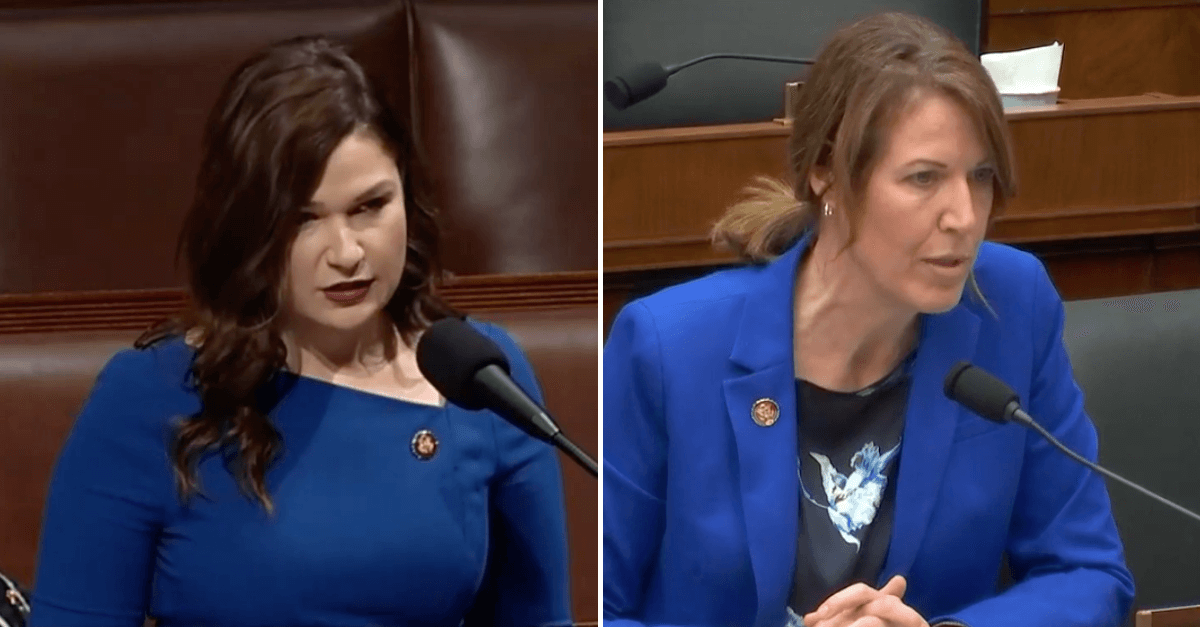
H.R. 3, now known as the Elijah E. Cummings Lower Drug Costs Now Act of 2019, should be voted on in the U.S. House this week after months of deliberation. The vote is expected to take place today.
There has been no shortage of drama with the bill, and some tweaks are still being made in the days leading up to a vote. The future of the legislation, as with any bill, will certainly run into roadblocks in Mitch McConnell’s Senate.
Reps. Abby Finkenauer and Cindy Axne have both proposed amendments to the bill.
Finkenauer will be adding an amendment that will create a requirement that pharmaceutical companies disclose the price of their drug in their advertisements, which was also a part of Senator Chuck Grassley’s drug-pricing bill.
“H.R. 3 goes after the heart of these problems, it puts people first, and it’s pissed off big pharma,” Finkenauer explained, on a press call. “And I gotta be honest with you, if big pharma is on the opposite side of you when community health centers, patient groups and AARP is on our side; then we’re on the right side of this.”
[inline-ad id=”1″]
Rep. Axne has also proposed four amendments, one of which would require the FDA to report which prescription drugs only have one manufacturer, thus making them vulnerable to price increases.
“The vincristine shortage puts children’s lives at risk – all because we placed our faith into one company without a backup plan. I know there are hundreds of vital drugs that face shortages any given year, which is why I’m calling on the FDA to provide a full list to Congress and outline their plan for improvement,” said Rep. Axne. “Parents need answers for their children, doctors need answers for their patients, and no American should worry their life saving medication is just going to up and vanish.”
Vincristine, a pediatric cancer drug, is experiencing a shortage because the only drug company who made it had a “manufacturing issue.”
[inline-ad id=”0″]
Axne’s second amendment will create a grant program to help reduce health care administrative costs and burdens, as well as reduce costs associated with health care administration by 50% at the federal level.
“Ask any health care professional about the excessive and laborious paperwork they have to do, and they’ll tell you that it’s burning them out – on top of wasting time and money. Our hospitals and health clinics are overworked, which is why this amendment is needed now more than ever,” Axne said.
Axne’s other two amendments would ensure that no less than 5% of the $500 billion dollars in savings from H.R. 3 will be used to fund the Rare Diseases Clinical Research Network through the National Institute of Health, and work to protect Iowans from surprise billing.
[inline-ad id=”2″]
Analysis of Savings
The Center for American Progress recently published a fresh analysis of H.R. 3, and it shows some incredible savings the bill would create for government programs, as well as individuals.
“New analysis by the Center for American Progress estimates that as a result of the H.R. 3 negotiation process, some diabetics could save more than $700 on an annual supply of certain types of insulin,” they wrote. “Moreover, negotiation could bring down the net price for other types of drugs—including expensive treatments for cancer and multiple sclerosis—by thousands per month.”
One of the biggest, most popular pieces of H.R. 3 is the measure that would grant Medicare the power to negotiate drug prices.
“That reform alone would have a huge impact on drug costs for Americans. One study of 79 prescription drugs found that U.S. prices are nearly four times higher, on average, than those in comparable countries,” the analysis states.
[signup_form]
The analysis also notes that, aside from Medicare recipients, these prices would also be available to other patients, and the ramifications of having negotiated drug prices could be wide-spread. Drug manufacturers that refuse to negotiate will be punished for doing so, as well.
“Any drug manufacturers who refused to participate in negotiations or abide by the resulting maximum fair price would be subject to increasing financial penalties,” CAP states. “The legislation also cracks down on companies that increase a drug’s Medicare price above the rate of inflation by subjecting those drugs to excise taxes.”
Combined, these changes would save the government an estimated $500 billion over the next 10 years. This money would then be reinvested to strengthen the National Institutes of Health and the Food and Drug Administration.
[inline-ad id=”3″]
By Josh Cook
Posted 12/12/19
Politics

Biden marks Earth Day by announcing $7 billion in solar grants
The Biden administration on Monday announced the recipients of its Solar For All Program, a $7 billion climate program that aims to lower energy...

6 terrifying things that could happen if the Comstock Act is used to target abortion
Does 1873 sound like a really, really long time ago? Well, that’s because it is—but if Republicans and far-right anti-abortion activists have their...
Local News

No more Kum & Go? New owner Maverik of Utah retiring famous brand
Will Kum & Go have come and gone by next year? One new report claims that's the plan by the store's new owners. The Iowa-based convenience store...

Here’s a recap of the biggest headlines Iowa celebs made In 2023
For these famous Iowans, 2023 was a year of controversy, career highlights, and full-circle moments. Here’s how 2023 went for the following Iowans:...




